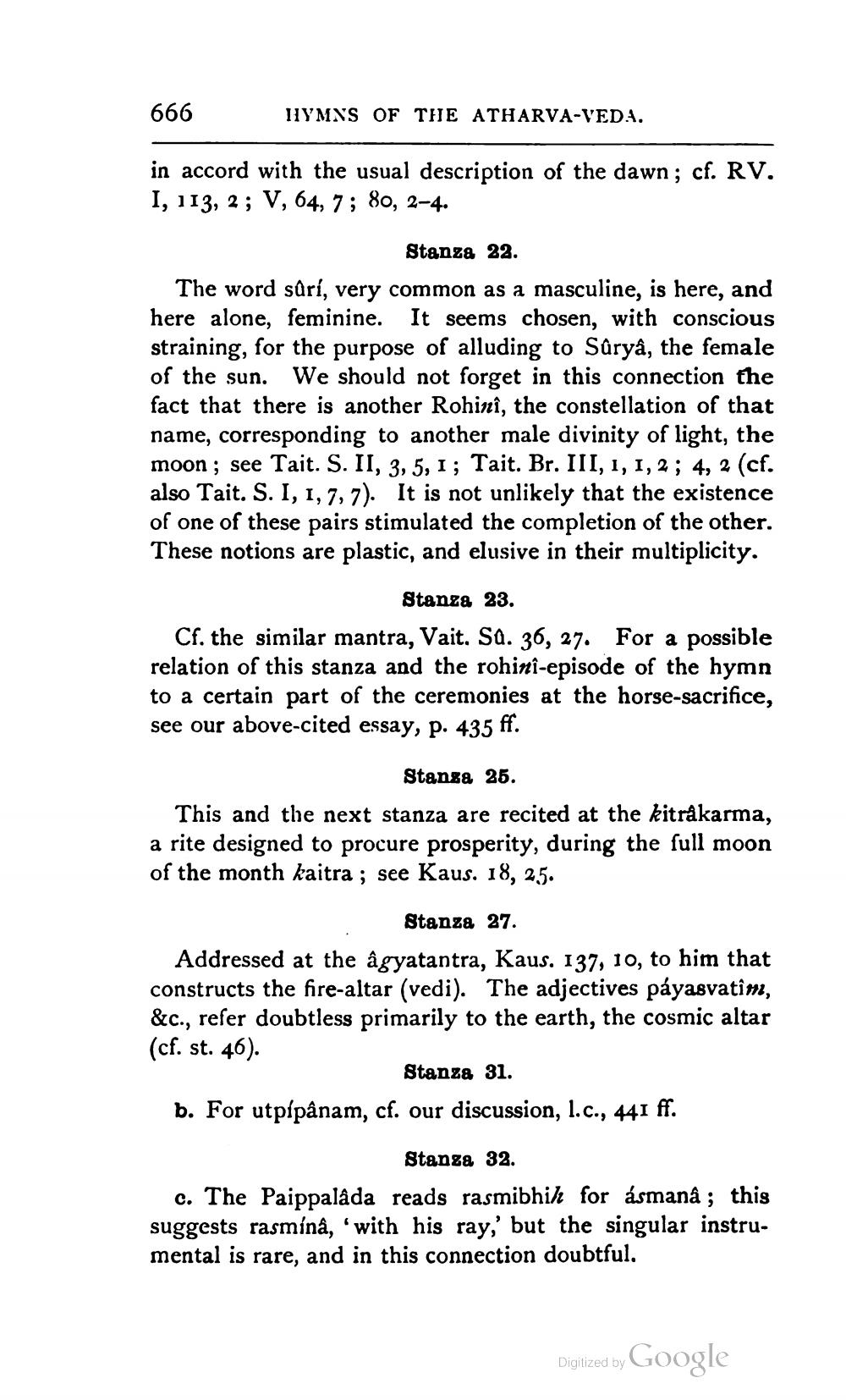________________
666
HYMNS OF THE ATHARVA-VEDA.
in accord with the usual description of the dawn; cf. RV. I, 113, 2 ; V, 64, 7; 80, 2-4.
Stanza 22. The word sûrí, very common as a masculine, is here, and here alone, feminine. It seems chosen, with conscious straining, for the purpose of alluding to Sûryâ, the female of the sun. We should not forget in this connection the fact that there is another Rohinî, the constellation of that name, corresponding to another male divinity of light, the moon ; see Tait. S. II, 3, 5, 1; Tait. Br. III, 1, 1, 2; 4, 2 (cf. also Tait. S. I, 1,7, 7). It is not unlikely that the existence of one of these pairs stimulated the completion of the other. These notions are plastic, and elusive in their multiplicity.
Stanza 23. Cf. the similar mantra, Vait. Sa. 36, 27. For a possible relation of this stanza and the rohini-episode of the hymn to a certain part of the ceremonies at the horse-sacrifice, see our above-cited essay, p. 435 ff.
Stanza 25. This and the next stanza are recited at the kitråkarma, a rite designed to procure prosperity, during the full moon of the month kaitra ; see Kaus. 18, 25.
Stanza 27. Addressed at the âgyatantra, Kaus. 137, 10, to him that constructs the fire-altar (vedi). The adjectives páyasvatim, &c., refer doubtless primarily to the earth, the cosmic altar (cf. st. 46).
Stanza 31. b. For utpípânam, cf. our discussion, 1.c., 441 ff.
Stanga 32. c. The Paippalada reads rasmibhih for ásmanâ ; this suggests rasmina, 'with his ray,' but the singular instrumental is rare, and in this connection doubtful.
Digized by Google




